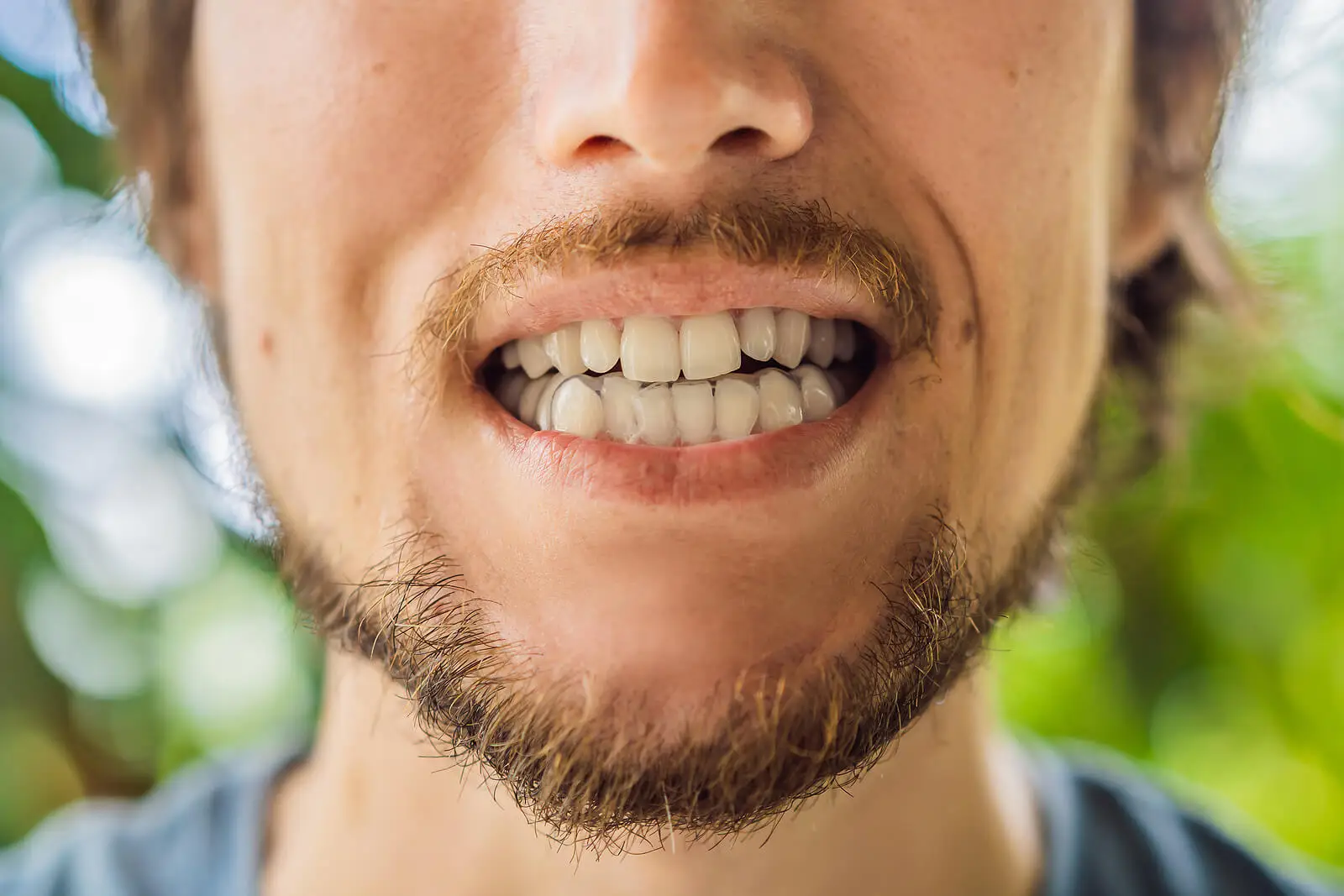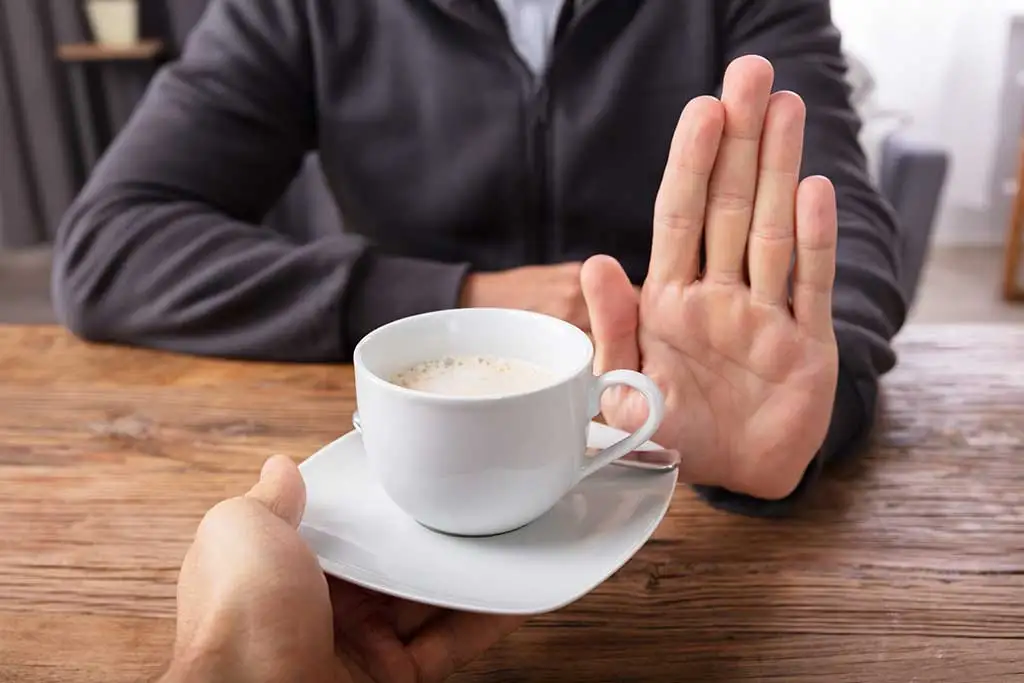Jaw Pain Due to Stress: How to Deal With It


Reviewed and approved by the doctor Diego Pereira
Stress-related jaw pain is a very common problem in the general population. In fact, its incidence is progressively increasing due to the hectic lifestyle that most people lead.
The jaw is the bone that allows chewing to take place. In this way, it fulfills a basic function in digestion and nutrition. The problem is that its health can be influenced by stress. Thus, during episodes of great tension, it tends to present disorders such as bruxism. Let’s take a closer look.
The relationship between jaw pain and stress
Jaw pain due to stress is a very common occurrence. Many people are surprised by the relationship between the two entities. In fact, many do not even perceive themselves to be stressed. However, the relationship between stress and temporomandibular disorders has been observed in scientific studies .
Thus, other associated symptoms such as headache, clicking, locking of the jaw and difficulty opening the mouth have been reported. These tend to manifest themselves after episodes of stress, or when the person does not get adequate rest.
According to an article by IMED Dental, the mouth is one of the main ‘escape routes’ for stress. In other words, it is one of the places where it manifests itself most. Therefore, in situations that trigger it, many people tend to clench their teeth involuntarily and forcefully.
As a result, the teeth grind against each other and the jaw muscles are subjected to constant tension. This is medically known as bruxism. It’s estimated that almost 70% of the Spanish population suffers or has suffered from this condition at some point in their lives.
This is a condition that can evolve into something serious, since the constant tension can cause the pain to spread to other areas, such as the neck and back. In addition, the grinding of the teeth causes them to weaken and erode.
We think you may also enjoy reading this article: 10 Negative Effects of Stress on Your Health To Keep in Mind
About bruxism

Bruxism is something that can occur at any time of the day, although it most often occurs at night, while the person sleeps. The big drawback is that this is totally unconscious.
It usually causes jaw pain, but also tooth sensitivity, and discomfort in the ears. Eating very cold or hot food is often quite uncomfortable. And although stress is a major cause, it also occurs in depressive conditions.
It is most often seen in people under very intense work stress or in those who have very long working days. It’s also common in those who have to spend a lot of time concentrating.
In periods of stress, the body’s perception is often lost. Thus, teeth start to clench and jaw pain appears. When there is no timely intervention and the stressful situation continues, further complications can occur.
How to fight stress-related jaw pain
The incidence of stress-related jaw pain has increased in recent decades. The reason is simple: there are more and more circumstances and environments that trigger high levels of stress, especially at work.
There are many ways to address this symptom, but it is necessary to consult a dentist first to rule out other possible causes. Often, an unloading splint that fits over the teeth is recommended. Its function is to prevent the pieces from colliding with each other to reduce or prevent their erosion.
It also allows the jaw to relax during sleep to reduce the recurrence of bruxism during this period. In certain cases, its use during the day is indicated. What else helps the treatment? Let’s look at some additional tips.
Take care of your sleep
Jaw pain is greatly influenced by the quality of sleep. Most bruxism episodes occur throughout the night. In addition, it’s often associated with poor rest, frequent awakenings, nightmares, and other sleep problems.
Therefore, one way to address this problem is to improve sleep habits. Certain bedtime behaviors encourage going to bed in an agitated state. For example, this includes eating dinner just before bedtime, watching television, or being on your cell phone.
Therefore, the key is to engage in activities that do help relaxation. Reading before bedtime, taking a warm shower and meditating are some examples.
Managing stress
Considering that jaw pain is related to stress, we must learn to manage this problem. To do so, certain healthy lifestyle habits can be very beneficial.
Spending time outdoors and engaging in outdoor activities – walking, visiting parks, walking on the beach, going to the mountains, and the like – considerably improves the perception of stress.
Something similar occurs with the practice of physical exercise. Both sports and other forms of physical activity have a positive impact on stress reduction.
Avoid stimulants

Stimulants are one of the main causes of nervousness and sleep disturbances. For example, drugs such as tobacco, alcohol, or even other more potent drugs (amphetamines or cocaine), are closely associated with this problem.
The same happens with caffeine or theine. In people suffering from stress-related jaw pain, it is advisable to eliminate all these substances from the routine. Bruxism may decrease just by reducing their consumption.
Like this article? You may also like to read: Work Stress Associated with Risk of Heart Attack
Massages for jaw pain
Jaw pain usually affects the temporomandibular joint area in a special way. Massage of this area, or any other area where tension is felt, can help reduce discomfort.
To do this, place two fingers on the sore spot. With the mouth ajar, circular movements should be made with these fingers for a few minutes.
Other recommendations
To try to prevent jaw pain from increasing in intensity, other measures can be carried out.
- First of all, it’s important to avoid nail biting or chewing gum. These habits tend to fatigue the jaw muscles even more.
- It is also advisable to reduce the consumption of very hard foods.
- Similarly, it is recommended to take care of the postures, both during the day and at bedtime. When sleeping face down, it is possible to overload the neck, and jaw pain may spread.
Recommendations to prevemt jaw pain due to stress
There are some aspects to consider to avoid the appearance of jaw pain. The first thing is to be aware of this problem and its relationship with stress. Therefore, it is essential to try to control it and learn to manage it.
In addition, you can try to relax your jaw at times when you notice tension in that area. To do this, the tip of the tongue should be placed on the roof of the mouth, touching the teeth. Stretching sessions, both for the neck and the rest of the body, can help eliminate accumulated tension.
What to remember about jaw pain caused by stress
Stress jaw pain is usually caused by bruxism. This is the tendency to clench or grind your teeth unconsciously. This can lead to serious complications, such as hearing discomfort, neck or back pain, sleep disturbances, etc.
Therefore, it’s advisable to recognize the situations that trigger stress and, above all, learn to manage them. Fortunately, there are more and more therapies and professionals that guide you as to how to treat this condition. If you have this problem, don’t hesitate to request a consultation.
All cited sources were thoroughly reviewed by our team to ensure their quality, reliability, currency, and validity. The bibliography of this article was considered reliable and of academic or scientific accuracy.
- Ahuja V, Ranjan V, Passi D, Jaiswal R. Study of stress-induced temporomandibular disorders among dental students: An institutional study. Natl J Maxillofac Surg. 2018 Jul-Dec;9(2):147-154. doi: 10.4103/njms.NJMS_20_18. PMID: 30546228; PMCID: PMC6251286.
- Bertazzo-Silveira E, Kruger CM, Porto De Toledo I, Porporatti AL, Dick B, Flores-Mir C, De Luca Canto G. Association between sleep bruxism and alcohol, caffeine, tobacco, and drug abuse: A systematic review. J Am Dent Assoc. 2016 Nov;147(11):859-866.e4. doi: 10.1016/j.adaj.2016.06.014. Epub 2016 Aug 10. PMID: 27522154.
- Bortoletto, C. C., Salgueiro, M. da C. C., Valio, R., Fragoso, Y. D., Motta, P. de B., Motta, L. J., Kobayashi, F. Y., Fernandes, K. P. S., Mesquita-Ferrari, R. A., Deana, A., & Bussadori, S. K. (2017). The relationship between bruxism, sleep quality, and headaches in schoolchildren. In Journal of Physical Therapy Science (Vol. 29, Issue 11, pp. 1889–1892). Society of Physical Therapy Science. https://doi.org/10.1589/jpts.29.1889
- Chemelo VDS, Né YGS, Frazão DR, de Souza-Rodrigues RD, Fagundes NCF, Magno MB, da Silva CMT, Maia LC, Lima RR. Is There Association Between Stress and Bruxism? A Systematic Review and Meta-Analysis. Front Neurol. 2020 Dec 7;11:590779. doi: 10.3389/fneur.2020.590779. PMID: 33424744; PMCID: PMC7793806.
-
Herrera-Valencia A, Ruiz-Muñoz M, Martin-Martin J, Cuesta-Vargas A, González-Sánchez M. Effcacy of Manual Therapy in TemporomandibularJoint Disorders and Its Medium-and Long-TermEffects on Pain and Maximum Mouth Opening:A Systematic Review and Meta-Analysis. J Clin Med. 2020 Oct 23;9(11):3404. doi: 10.3390/jcm9113404. PMID: 33114236; PMCID: PMC7690916.
-
Khan F, Young WG, Daley TJ. Dental erosion and bruxism. A tooth wear analysis from south east Queensland. Aust Dent J. 1998 Apr;43(2):117-27. doi: 10.1111/j.1834-7819.1998.tb06100.x. PMID: 9612986.
- ¿Puede causar el estrés dolor en la mandíbula? – IMED Dental. (n.d.). Retrieved May 31, 2021, from https://dental.imedhospitales.com/articulos/puede-causar-el-estres-dolor-en-la-mandibula/.
-
Staniszewski K, Lygre H, Bifulco E, Kvinnsland S, Willassen L, Helgeland E, Berge T, Rosén A. Temporomandibular Disorders Related to Stress and HPA-Axis Regulation. Pain Res Manag. 2018 May 2;2018:7020751. doi: 10.1155/2018/7020751. PMID: 29854038; PMCID: PMC5954859.
- Teoh L, Moses G. Drug-induced bruxism. Aust Prescr. 2019 Aug;42(4):121. doi: 10.18773/austprescr.2019.048. Epub 2019 Aug 1. PMID: 31427840; PMCID: PMC6698238.
This text is provided for informational purposes only and does not replace consultation with a professional. If in doubt, consult your specialist.








